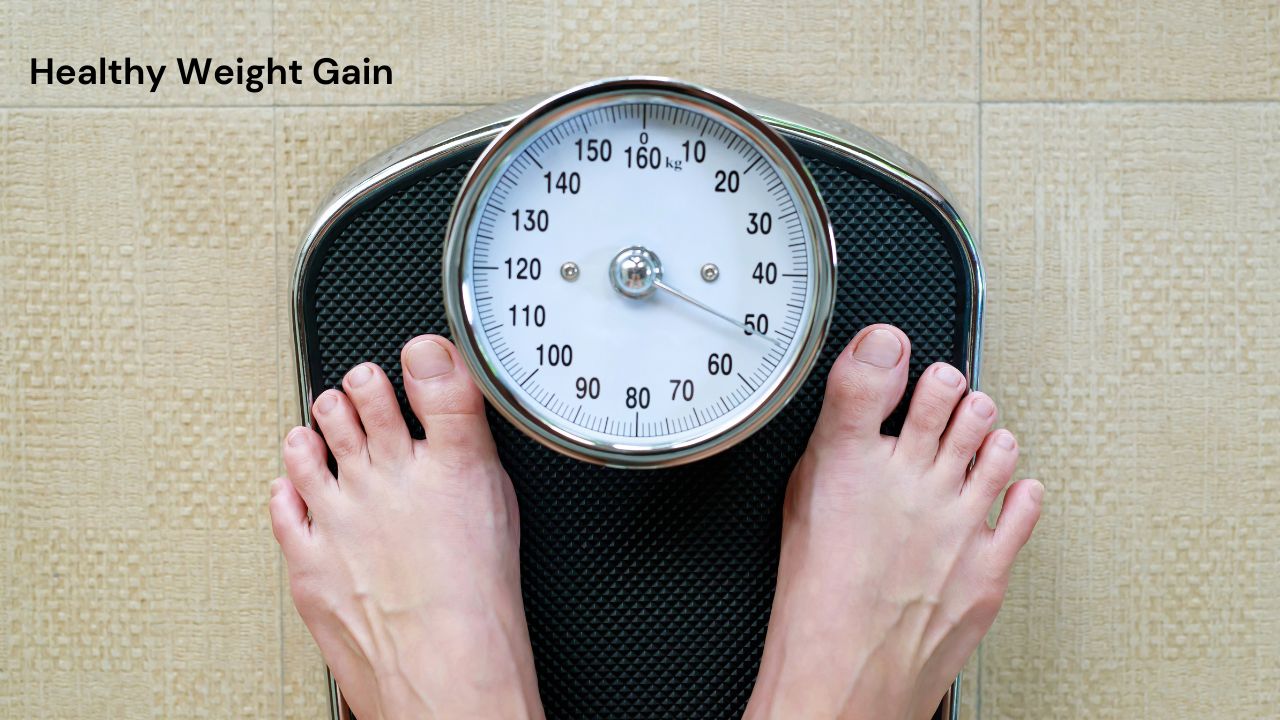Healthy Weight Gain
Gaining weight might seem like a straightforward task for those looking to bulk up, but for many, it can be as challenging as losing weight. Whether you’re looking to gain weight to improve athletic performance, recover from an illness, or simply to feel healthier and more energetic, doing so in a healthy manner is crucial. This blog will guide you through effective and healthy ways to healthy weight gain, focusing on diet, exercise, and lifestyle changes.
Understanding Weight Gain
Before diving into specific strategies, it’s essential to understand the basics of weight gain. Weight gain occurs when you consume more calories than your body burns. This calorie surplus provides the energy needed for your body to build new tissue, including muscle and fat.
Setting Realistic Goals
The first step in any weight gain journey is to set realistic goals. Gaining weight too quickly can lead to unwanted fat gain and other health issues. Aiming for a weight gain of about 0.5 to 1 pound per week is a safe and sustainable target. This translates to a daily calorie surplus of about 250-500 calories.
Nutritional Strategies for Weight Gain
Increase Caloric Intake
The cornerstone of weight gain is consuming more calories than you burn. To determine your caloric needs, you can use an online calorie calculator to estimate your total daily energy expenditure (TDEE). Once you know your TDEE, add 250-500 calories to create a calorie surplus.
Eat More Frequently
Instead of sticking to the traditional three meals a day, try to eat five to six smaller meals throughout the day. This approach ensures a steady intake of calories and nutrients, making it easier to consume enough food.
Choose Nutrient-Dense Foods
Opt for foods that are rich in nutrients and calories. Here are some examples:
Protein-rich foods: Lean meats, fish, eggs, dairy products, legumes, and tofu.
Healthy fats: Avocados, nuts, seeds, olive oil, and fatty fish like salmon.
Carbohydrates: Whole grains, starchy vegetables, fruits, and legumes.
Incorporate Calorie-Dense Snacks
nclude snacks that are high in calories and nutrients in your diet. Some good options include:
Nuts and nut butters
Cheese and whole-grain crackers
Greek yogurt with honey and granola
Dried fruit
Drink Your Calories
If you struggle to consume enough calories through solid food, consider drinking high-calorie beverages. Smoothies, milkshakes, and protein shakes can be excellent sources of extra calories. Be sure to include ingredients like milk, yogurt, protein powder, fruits, and nut butters to boost the calorie content.
Exercise for Healthy Weight Gain
Exercise, particularly strength training, plays a vital role in healthy weight gain by promoting muscle growth rather than fat accumulation.
Strength Training
Engage in strength training exercises at least three times a week. Focus on compound movements that target multiple muscle groups, such as:
Squats
Deadlifts
Bench presses
Pull-ups
Rows
Aim for 3-4 sets of 6-12 repetitions for each exercise. Gradually increase the weight and intensity to continue challenging your muscles and promoting growth.
Avoid Excessive Cardio
While cardiovascular exercise is important for overall health, excessive cardio can burn too many calories and hinder your weight gain efforts. Limit cardio sessions to 20-30 minutes, 2-3 times per week, focusing on low to moderate intensity.
Rest and Recovery
Allow your muscles time to recover and grow by incorporating rest days into your exercise routine. Aim for at least one full day of rest per week and ensure you’re getting adequate sleep each night.
Lifestyle Changes for Weight Gain
Stay Hydrated
Hydration is essential for overall health and muscle function. Drink plenty of water throughout the day, but avoid drinking large amounts right before meals as it can reduce your appetite.
Manage Stress
Chronic stress can negatively impact your appetite and overall health. Practice stress management techniques such as meditation, deep breathing exercises, yoga, or engaging in hobbies you enjoy.
Monitor Your Progress
Keep track of your weight gain progress by weighing yourself weekly and taking body measurements. Adjust your diet and exercise plan as needed to ensure you’re making steady progress towards your goals.
Sample Meal Plan for Weight Gain
Here’s a sample meal plan to give you an idea of how to structure your meals for weight gain:
Breakfast:
3 scrambled eggs with spinach and cheese
2 slices of whole-grain toast with avocado
1 glass of whole milk
Mid-Morning Snack:
Greek yogurt with honey and granola
1 banana
Lunch:
Grilled chicken breast
Quinoa salad with vegetables and olive oil
1 cup of mixed fruit
Afternoon Snack:
Smoothie made with whole milk, protein powder, peanut butter, and frozen berries
Dinner:
Baked salmon
Sweet potato mash with butter
Steamed broccoli with a drizzle of olive oil
Evening Snack:
Cottage cheese with pineapple
A handful of nuts
weight gainer for men
weight gainer for women
Conclusion
Gaining weight in a healthy manner requires a balanced approach that includes increasing your caloric intake, focusing on nutrient-dense foods, engaging in regular strength training, and making supportive lifestyle changes. By following the strategies outlined in this guide, you can achieve your weight gain goals and improve your overall health and well-being.
Remember, everyone’s body is different, and what works for one person might not work for another. It’s important to listen to your body and make adjustments as needed. If you have any underlying health conditions or concerns, consider consulting with a healthcare professional or a registered dietitian to create a personalized weight gain plan tailored to your specific needs.

Be First to Comment